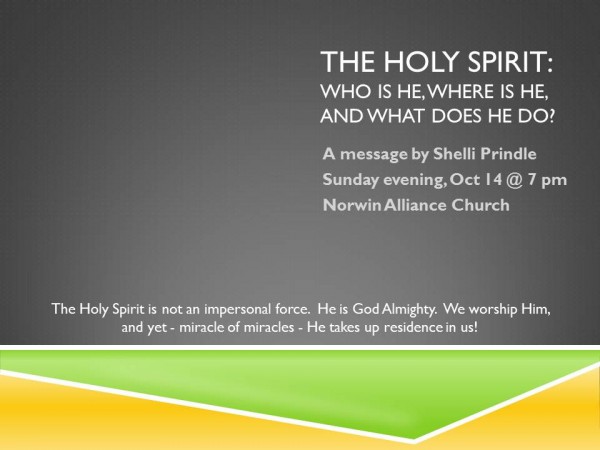Category: Uncategorized
Reality Just Beyond the Glass
I sit behind a polished windowpane
Hearing the hum of heated air through vents.
On the other side of the glass
Lie trees in autumn splendor on a hillside.
The gentle breeze takes yellowish foliage
To a carpet of gold and green below.
Wafting in every direction under sunlight,
Drop beautiful leaves.
On goes a gorgeous shower of what was,
Making room for what will be.
The sunbeams on the shimmering trees
And the continual dance of the season proceeds;
As I sit behind glass panes in a building made by man,
Peering out at the artistry of God.
On the wall beside me hangs a framed photograph
Of an autumn scene.
While beautiful the picture is,
It does not compare to the reality just beyond the glass.
What comes directly from God
Cannot be adequately reproduced by man.
Chairs, buildings, heating systems, automobiles,
Framed art, calculators, tennis shoes, cherry pie, basketballs.
All these reflect the mind of our Creator,
Who designed our minds to design these things.
Yet, for all we make,
Nothing compares to what God creates!
Galaxies, mountains, antelopes, apple trees,
Sunshine, emeralds, sharks, bluebirds, waterfalls.
I appreciate the comfortable library in which I sit.
I enjoy looking out its windows when the ice of winter comes.
But my soul longs for the day
When I will not be separated from any of the handiwork of God.
I wait for the day when the city in which I walk
Will not have been manufactured by the hand of people.
Come quickly the day when everything about existence is as beautiful and rich as God intended,
Untainted by the messiness of humanity.
I wait for . . .
“The holy city, new Jerusalem, coming down out of heaven from God.”
A city that comes from Heaven, right down from the throne of God!
This will be my home!
In that day, nothing will be unsatisfactory
Because nothing will be “once-removed” from God’s perfection.
All will be as He desires,
Which is – in our heart of hearts – what we, in fact, desire.
We will work beside Him then,
For He will finally and fully dwell with us.
The work of men will be the work of God,
For then we shall completely please Him.
All creation will be new – and uncursed –
Never wearing out, never growing old.
We will create and enjoy and explore forever
Because of the grace of precious Jesus . . .
When we finally enter the reality just beyond the glass.
“For now we see through a glass, darkly; but then face to face.” (I Corinthians 13:12, KJV)
“I saw the holy city, new Jerusalem, coming down out of heaven from God.” (Revelation 21:2, ESV)
Are Christians Praying Humanist Prayers?
Paradigm shifts. They are often necessary. In the case of much prayer within the church, it is time for a paradigm shift. Our consumer-driven, self-absorbed culture has pushed prayer into a veritable humanist corner. Humanism claims that the reasoning of humans is to be valued above any divine thinking or supposed supernatural working. Although most Christians do not intend to function from a worldview antithetical to biblical Christianity, we may be doing so by default. As with any practice, prayer must be measured against God’s holy Word. We must do what Romans 12:2 commands us and ensure that our patterns of thinking do not simply flow with the culture at large, but rather press upstream against ungodly currents.
While recently teaching a Bible class, I was suddenly struck with a reality to which I had not previously paid much attention. We were considering the words of the Apostle Paul in Philippians 2:7 (ESV) about Jesus’ amazing condescension from Heaven to earth two thousand years ago, “But [Jesus] made himself nothing, taking the form of a servant, being born in the likeness of men.” We honed in on the fact that Jesus made a willful decision to serve His Father even though Jesus is Himself fully God. Jesus chose not to grasp at His own rights (Philippians 2:6), but He elected rather to do the Father’s will . . . no matter the cost. In doing so, He demonstrates to us the proper attitude for genuine Christian living (Philippians 2:5).
What hit me the hardest was Jesus’ approach to His Father’s will; Jesus always submitted Himself to the Father’s plan and glory. Though fully God, Christ worked the blueprint of the Father in order that the perfect will of the blessed Trinity be accomplished. Most notably, we remember Jesus in the Garden of Gethsemane on the eve of His arrest as He contemplates the degree of suffering He is facing. Jesus prayed, “My Father, if it be possible, let this cup pass from me; nevertheless, not as I will, but as you will” (Matthew 26:39, ESV).
Wow! Jesus was God in the flesh, and He actually says that He would rather have the Father’s will accomplished than gain what the humanity of Him desired – to escape suffering. Hence, the dramatic difference between Jesus’ prayer and Peter’s “prayer.” Peter had not wanted Jesus to suffer either, but he allowed no room for God’s mysterious will and thus boldly declared about Jesus’ explanation of His own future crucifixion, “God forbid it, Lord! This shall never happen to You” (Matthew 16:22, NASB). No sooner had Peter uttered His disgust with the plan of God than Jesus turned to Peter and proclaimed, “Get behind me, Satan! You are a hindrance to me. For you are not setting your mind on the things of God, but on the things of man” (Matthew 16:23, ESV).
Notice the underlying similarity but weighty and stark difference between the petition of Peter and Jesus. Both Peter and Jesus were troubled by the thought of the Son of God suffering so horrendously. However, the difference is critical. While Peter acted completely out of human flesh and thinking without giving room for God’s unfathomable will, Jesus submitted His pain and reluctance to His Father in order that God would get His way – which is the best way by infinite measure!
When I thought about the prayer of Jesus in the Garden, I pondered my own prayer life. So often we Christians begin prayers like this, “Dear God, I ask you to . . .” And then follows a list of items we present to God – things or circumstances we desire. We often give no thought to whether these things are God’s will, sometimes even foolishly believing God intends to spare us from all pain. We ask for relief as we see it and expect it. Instead, we ought to express our sorrow and anxious thoughts to God, and then we need to ask God to dominate any plan of ours with His perfect and mysterious will. If the Son of God prayed that God’s plan would override the desires of His humanity when the two were in disagreement, then we certainly should as well!
When Jesus instructed His disciples on prayer, He expressed at the outset in definitive terms that three things are priority for sure: God’s name is great above all and to be held in highest honor, God’s eternal kingdom is to come and take priority over human plans, and God’s will is to be done on this earth where our feet tread each day (see Matthew 6:9-10). We are not taught by Jesus to pray for human passions unless these longings glorify God’s name and press His kingdom forward in a world of much darkness. Prioritized over all is the ongoing will of God.
We must ask ourselves a difficult but essential question, “Am I praying for the glory and will of God or for the avoidance of anything my flesh deems difficult? Humanists place people above any supernatural being. Humanists trust in the thinking of people to solve our every dilemma. Christians place God above the will of humans. Christians trust in God’s sovereign plan to make life what it should be – even when pain is part of the picture. So I ask myself, “Am I praying as a humanist? Or as a Christian?”
THE HOLY SPIRIT: Who Is He, Where Is He, and What Does He Do?
The Holy Spirit is not an impersonal force. He is God Almighty. We worship Him, and yet – miracle of miracles – He takes up residence in us!
Christians need a biblical, realistic view of the Holy Spirit. The church seems to be lacking in its instruction about the third person of the Trinity. Come to this message and learn the truth about the hope of God in the universe and in us!
Autumn Reminders of an Eternal Kind
‘For “All men are like grass, and all their glory is like the flowers of the field; the grass withers and the flowers fall, but the word of the Lord stands forever.”‘ – I Peter 1:24 (NIV – 1984)
Fall. It is a season that reminds us of endings. Once thriving leaves now drop from their branches bursting with color, but dying. Beautiful summer flowers have lost their grandeur and now succumb to hues of brown and gray. Colder temperatures flow in and bright, long days full of sunshine move out. We are inundated with change. We are regularly reminded of our helplessness to stop the flow of God’s creation. We are caught between summer and winter in the fleeting uniqueness of autumn. Though the season brings its own joy with fabulous scents and colors of orange, yellow, and red; we know it is the end of summer and the start of a period of dormancy and cold.
As we enjoy the changes of fall, let it remind us of a vital truth. I believe God intends for us to see with physical eyes something that points to a lasting, spiritual truth. When you look at a fallen leaf or disintegrating, summer flower; think this thought:
- “All men are like grass, and all their glory is like the flowers of the field; the grass withers and the flowers fall, but the word of the Lord stands forever.” (I Peter 1:24, NIV, 1984)
Let crinkling leaves and fallen blossoms remind us of something God wants always at the base of our thinking – we are finite and fallen and soon to pass. Any glory we claim to have is as transitory as summer leaves. We live and we die. We seek to accomplish much, but in the end we disappear from this earth. We cannot prevent our own demise. We stand helpless before our “fall.” Except for one thing!
Notice the severe difference God highlights between people and His Word. People wither and fall as the grass. God’s Word stands forever! God’s Word never bends, stoops, or loses its glory. Its beauty never fades; it’s “color” never wanes. No season comes that stops God’s Word. It endures, and endures with full dignity – “standing,” as it were! No weather pattern knocks God’s Word down. No disease causes His Word to waste away. No disaster or tragedy causes His Word to twist or weaken. Through every change, through every heart break, through every earth-shattering event, through death itself; the Word of God stands!
I believe God purposefully showed us the drastic difference between our glory and His Word here in I Peter to remind us to stay focused on Him and not our own selves. I believe one of the reasons for autumn is to demonstrate through His creation an important reminder about human nature when compared to God. Our Lord graciously desires us to live with a constant awareness of our impermanent nature and His eternal nature. Of our failing attempts and His trustworthy ways. Of our sinfulness and His holiness. Of our dependence and His self-sufficiency. Of our need for His Word at the deepest and broadest levels.
You see, God reminds us at the end of I Peter 1:25 (NIV, 1984), “And this is the word that was preached to you.” This is no small or incidental statement! The Word that stands forever can be accepted into your own heart! The seed of God’s Word can be planted in your soul so that the death of you is certainly not the end of you!
God expresses this hope very succinctly in I Peter 1:22 (NIV, 1984), “For you have been born again, not of perishable seed, but of imperishable, through the living and enduring word of God.” Do you see it? We can be born again of an imperishable seed through God’s Word! When I put my hope for forgiveness and salvation in Jesus Christ, I am born of a seed that cannot be abolished – a seed that lasts forever and ever. The enduring Word of God gives me eternal, unbending life. Come seasons, winds, storms, difficulties, even death itself; but I will survive and live forever because the everlasting Word of God has been preached to me. And I have gladly and humbly accepted!
Newspaper Interview – Altoona Mirror
Shelli Prindle was interviewed by Linda T. Gracey from The Altoona Mirror regarding her upcoming speaking engagement with Ladies Encounter for their Fall meeting on Tuesday, September 18 at 7 PM.
“Shelli Prindle believes that while life can be messy, some day it will be glorious.”….To read the entire article, click on the following link:
Unbiased
Despite our culture’s best and misguided efforts to promote self-love, many people continue to feel less valuable than those around them for various reasons. We have less money than someone else, we never completed our master’s degree, we do not have our own office at work, our house is the smallest in the neighborhood, our IQ is not as high as someone else’s, our body is not as fit, our health is not up to par, our family’s background is embarrassing, we don’t look as good as others, our sense of humor is less than desirable, our talents are few, etc., etc., ad infinitum.
Sometimes we actually get to feeling that we either do not deserve or cannot earn the care and attention of others. Worse yet, we sometimes suppose we cannot possibly gain the care and attention of God. Nothing could be further from the truth when it comes to the self-professed “Lord of lords.” Catch this verse tucked away in the first portion of the Old Testament book of Deuteronomy, “For the LORD your God is the God of gods and the Lord of lords, the great, the mighty, and the awesome God who does not show partiality nor take a bribe” (Deuteronomy 10:17, NASB).
Simply put, God does not show favoritism as this world does. He will not accept bribes of money, talent, status, or good works. He cares for people on the basis of one thing – His own, consistent character. God is the great One, the mighty One, and the awesome One; yet He cares for us because of His endless mercy. God reaches down to every person in just the same way – out of pure compassion. In God’s eyes, we are all equally helpless, and equally undeserving of His best. However, without one hint of bias toward any particular type of individual, God reaches down to us in the Person of Jesus Christ.
The rich cannot bait God with money. The intelligent cannot sway God with brainpower. The influential cannot gain God’s attention with power. The poorest among us can find God. Those with lowest aptitude can experience His loving arms. Those least known or understood can hear His voice. No matter the world’s opinion of you or your assumptions about yourself, God’s action toward you is unprejudiced. You cry out sincerely to Him, and He responds with mercy. So unlike human beings, God “does not show partiality nor take a bribe.” Lift your head. Look up. God loves YOU because of who HE is.
Standing Before Monsters
Sometimes, in order to get to the promise, we have to stand before a monster. The path to the sacred and wonderful place God wants to take us is not one of least resistance. We gaze forward, and we see monsters looming on the horizon – circumstances, individuals, problems, and heartaches that appear too big for us to handle.
So it was for God’s people when He called them to take over the Promised Land. Just about to enter the fields of blessing, the Israelites were reminded of this life’s harsh realities. “Hear, O Israel! You are crossing over the Jordan today to go in to dispossess nations greater and mightier than you, great cities fortified to heaven, a people great and tall, the sons of Anakim, whom you know and of whom you have heard it said, ‘Who can stand before the sons of Anak?'” (Deuteronomy 9:1-2, NASB) What a difficult thing to hear! God clearly explains that His own people are about to come face-to-face with mighty giants. The enemy is bigger than them and stronger than them. Not only so, but the reputation of the enemy is well-known across the land so that many ask, “Who can even survive and stand before these monstrous people?”
A similar question often rings in our own hearts. How can I survive the monsters in front of me? I see them. I hear them. I know that they are real. Others confirm that they are real. They are bigger than us. They are stronger than us. By all logical thinking, we are doomed. The job loss should ruin our finances. The illness should destroy us. The circumstantial setback is one from which we should not recover. The troubled relationship should ruin our family. The human enemy should do us harm. The burden should drive us to insanity. The grief should completely stifle us. The unanswered questions should keep us up at night.
But, they don’t. Even though the monsters are bigger than us, they are not bigger than our God! He is a “consuming fire.” Nothing will stand in His path against His will and be able to remain. He consumes the giants that would consume us! Listen to the resounding answer given to the threat of looming giants on the horizon, “Know therefore today that it is the LORD your God who is crossing over before you as a consuming fire. He will destroy them and He will subdue them before you, so that you may drive them out and destroy them quickly, just as the LORD has spoken to you” (Deuteronomy 9:3, NASB).
As you look longingly for the “land of promise,” what monsters stand on the border – threatening your demise? Does all common sense declare these giants are mightier than you? Do not fear. They are mightier than you, but they are absolutely helpless compared to God. He goes before you, defying all scary reports and difficult realities. He is a consuming fire, eliminating the monsters that cruelly threaten His people.
Child of God, you will enter into the promise of God for your life because you Lord is infinitely strong and wonderfully alive. He consumes what stand against His children – no matter how ominous the giants appear. We will stand before the monsters, but the consuming fire will lead the way.
Do All Good Things Really Come to an End?
I recently attended a picnic that included a fun “bouncy house” with a slide for kids to enjoy. Squeals of delight accompanied the antics of the children as they jumped and played. The picnic also included cookie decorating for kids and the time-tested water balloon battle.
As I was leaving the picnic and walking to my car in the evening, I heard a young voice about one hundred feet behind me begin to complain and then cry. This little girl wanted her mom to know that she was not at all ready to leave the bouncy house and all her friends. As the girl entered into a tantrum; I heard her mother say, “All good things must eventually come to an end.” At those words, I stopped in my tracks. I literally paused in the parking lot and thanked God that the mother’s statement was not true. Though countless people throughout the years have uttered the same sentence as this caring mother, it is simply false.
Oh, to be sure, we have all felt the pangs of good things seeming to come to an end: the last day of a great vacation arrives, darkness settles in after a glorious sunset, bad news follows a time of laughter with friends, sickness hits after a long stint of health, discontent invades after a great success, a beautiful flower fades, a loved one moves away, a friend dies, a season of life passes and only memories are left. Yes, in this life we experience loss and grief. The glimmers of goodness are invaded by a pervasive tendency toward disappointment, sadness, and loss. However, the good we experience is not a temporary blip on the computer screen of life, but rather a deep and meaningful reminder of original intentions that will be gloriously restored. Good is not flimsy and of a temporary nature; good is ultimately enduring and victorious.
Recall God’s original pronouncement of His work on the sixth day of creation, “God saw all that He had made, and behold, it was very good” (Genesis 1:31, NASB). Before our human nature turned against God and His plan for the cosmos, the world was very good. Of course! For, it came from a good God. This God is eternal; His goodness goes endlessly back before the start of the world. In the same way, His good will go endlessly forward at the re-creating of this world. When God finally makes His dwelling place with us (Revelation 21:3), we will experience the reality of Psalm 16:11 (NASB), “In Your presence is fullness of joy; in Your right hand there are pleasures forever.”
Did you catch the all-important words? “Fullness of joy” and “pleasures forever.” This is not the stuff of fairytales. This is truth from the Word of God. As true as John 3:16 is Psalm 16:11. God will once-and-for-all vanquish evil and allow good to prevail unhindered. Imagine! No end to righteous enjoyment! No watching the clock to see when the end of a good thing comes. No incomplete moments. No “having to leave the bouncy house.” No separating of right relationships. No goodbye. No regret. No end to good.
I urge you, then, to consider the way to be a part of God’s plan. In the first century A.D., the Apostle Paul identified the heart of the problem when it comes to goodness and our own, individual hearts. He knew the pain of goodness interrupted – of the seemingly triumphant evil. He said in Romans 7:18-20 (NIV), “I know that nothing good lives in me, that is, in my sinful nature. For I have the desire to do what is good, but I cannot carry it out. For what I do is not the good I want to do; no, the evil I do not want to do – this I keep on doing. Now if I do what I do not want to do, it is no longer I who do it, but it is sin living in me that does it.”
So we see that good has its limits and end in people, too. But this is not the final chapter of the story. Even in the case of our own, human heart, “All good things do not have to come to an end.” Paul found the answer to our dilemma. When he recognized the sin himself (and, by the way, sin is the absence of good), he cried out, “What a wretched man I am! Who will rescue me from this body of death? (Romans 7:24, NIV, 1984). Paul saw that sin brings the death of all hope and goodness. He recognized his desperate need to be delivered from sin and death. The answer reverberates through the annals of time, “Thanks be to God – through Jesus Christ our Lord!” (Romans 7:25, NIV, 1984). Unequivocally, Jesus is the One who rescues us from sin and the death of good. Because of Jesus Christ, I will one day experience “fullness of joy” in God’s presence and His divine “pleasures forever.” (Psalm 16:11)
Hold on, my friend! Allow the glimpses of good you experience now to remind you of the ultimate and enduring reality, “All good things do not come to an end.” In fact, all truly good things will go on forever when our God comes back to vanquish evil and make all things good again. No more tears of sadness then. No more tantrums or frustration. Thank you, Jesus!
Splattered Spaghetti and the Heart of God
“Wash me, and I will be whiter than snow.” – Psalm 51:7 (NIV – 1984)
The other day I made for myself a simple plate of spaghetti. Of course, spaghetti is not inherently simple when you consider the red tomato sauce in which it is covered. My dinner was fully prepared – spaghetti drenched in sauce with some added mushrooms and parmesan cheese. I loaded the carbs onto my plate after a day of activity and exercise. My husband was out of town, so I grabbed my dinner from the kitchen counter to take it to the living room. My spaghetti was in one hand; my iced tea was in the other. Before I got past the edge of the kitchen, my balancing act proved unsuccessful, as the spaghetti slid off one side of my plate and splattered everywhere as it landed. The four-foot drop produced quite a mess! The white linoleum in that corner edge of my kitchen was covered in wet noodles, red sauce with cheese, and various mushrooms, which – just seconds ago – looked very appetizing. But now, it looked like someone had gotten quite ill. The dinner hit the floor with such force that sauce splattered onto the surrounding walls and carpet. In fact, I found sauce on the front door of my house, a half-story down and seven feet from the accident!
Though I was hungry, tired, and much wanting to eat; my immediate concern was to clean up the mess before stains set in. I went to the carpet and painted walls first, scrubbing with a good cleaning solution. The more I cleaned, the more I recognized additional spots of the sauce in unbelievable places. Finally, after picking up large heaps of the mess and dumping it into the garbage can, I got down on my hands and knees and started wiping away at the linoleum.
As I cleaned and scrubbed while kneeling on the floor, I thought, “What an inconvenience. What a dumb thing I just did. What a waste of time. This is annoying.” My busy arm came to a standstill as God dropped this beautiful reminder in my heart, “Shelli, this is what I do all the time – clean up the messes of the people I love. My heart is a heart of restoration. Though I don’t have to – for I have no obligations – I choose to be in the business of cleaning up messes, both big and small. People sin and turmoil comes; I forgive and I restore.”
Suddenly, my whole perspective changed. I was no longer bothered by the work I was doing. This inconvenience was now a hint of God’s unfathomable grace. He does not have to, but He willingly works continually to clean up our hearts and make them like new. He will even apply His heart to the restoration of this entire universe one day; though the sum total of its current pain, disaster, confusion, and messes seems insurmountable. God’s love and power are infinite and far-reaching. Just as I went to the farthest places spaghetti sauce splattered, so God goes to the furthest and deepest places human sin wreaks havoc. Projecting into the future, the Bible boldly declares, “Then I saw a new heaven and a new earth, for the first heaven and the first earth had passed away…He will wipe away every tear from their eyes…And he who was seated on the throne said, ‘Behold, I am making all things new.'” (Revelation 21:1, 4, 5, ESV)
In the meantime, our God gets down “on the floor” where we are to clean things up. He sent His Son to live here, suffer here, and pay for sin here. God continually works in the business of cleaning and restoration. Out of pure and unbelievable love, He keeps cleaning and restoring.
Do you see nothing in front of you but a terrible mess? Do you see nothing in you but a disaster? Do you see nothing around you but wreckage? Hear the heart of God, the One who cleans so much more than splattered spaghetti:
“Wash me, and I will be whiter than snow.” – Psalm 51:7 (NIV – 1984)
“Therefore, if anyone is in Christ, he is a new creation; the old has gone, the new has come!” – II Corinthians 5:17 (NIV – 1984)
“You will be called Repairer of Broken Walls, Restorer of Streets with Dwellings.” – Isaiah 58:12 (NIV – 1984)
“The Spirit of the Lord GOD is upon me, because the LORD has anointed me to bring good news to the poor; he has sent me to bind up the brokenhearted.” – Isaiah 61:1 (ESV)
“Bless the LORD, O my soul, and forget not all his benefits, who forgives all your iniquity, who heals all your diseases.” – Psalm 103:2-3 (ESV)
“I will cleanse them from all the sin they have committed against me and will forgive all their sins of rebellion against me.” – Jeremiah 33:8 (NIV – 1984)
Anticipation!
“When Christ, who is your life, appears, then you will also appear with him in glory.” – Colossians 3:4, NIV (1984)
Anticipation. Waiting. Excitement for something that cannot be adequately described. This is the stuff of the biblical Christian faith. We live between the tension points of what is and what will be. And what will be so grandly eclipses what is now that our God prescribed our hope as a hope that is alive (I Peter 1:3) and unsearchable (Ephesians 3:8).
Here it is in the simplest of terms, “When Christ, who is your life, appears, then you will also appear with him in glory” (Colossians 3:4, NIV, 1984). Clearly, there is a sense in which Jesus Christ has not yet “appeared.” This should be obvious to us. In the world today, people exist who curse Christ, malign Christ, and try to ignore Christ. Jesus has been labeled by many a liar, or merely a prophet, or just a moral teacher. Some despise Him with a deep hatred. Some spend years of life not recognizing Him for Who He is. Surely, the full identity of Jesus in all His glory has not yet been revealed. Hence, the apostle Paul talks about the time “when Christ appears.”
For now, the true identity of Christ remains somewhat hidden. If He were honored for Who He truly is, the world would be right. Even we who have repented of sins and asked Him to be our Savior do not completely see and act on the reality of Who Christ is. Our minds know He is the Lord, but we often live with other idols. Our minds know He is King of Kings, but we often live in fear. Our minds know He is the judge, but we often make decisions based on our own desires.
No, certainly not the world – and not even we Christians – see Jesus for Who He is in the final sense of the word. This is one reason Paul declared, “For now we see in a mirror dimly, but then face to face. Now I know in part; then I shall know fully, even as I have been fully known” (I Corinthians 13:12, ESV). Everything is somewhat fuzzy now, just a bit unclear. Isaiah said a similar thing 2,700 years ago when He prophesied about the second coming of Jesus, “And on this mountain He will swallow up the covering which is over all peoples, even the veil which is stretched over all nations. He will swallow up death for all time, and the Lord God will wipe tears away from all faces . . .” (Isaiah 25:7-8a, NASB). Did you catch that first part? The covering – the veil – will be taken away so things become crystal clear. The day that happens will also be the moment death is vanquished and every source of sadness is eradicated. What a day that is going to be!
So we wait. We long for Christ to ultimately appear. When He does, the totality of His being will come to light; and none will be able to refuse it. Whether willingly or by compulsion at the sight of His unhindered glory, “Every knee will bow, of those who are in heaven and on earth and under the earth, and that every tongue will confess that Jesus Christ is Lord, . . .” (Philippians 2:10-11a, NASB). Can you imagine? Finally! All people will honor Him! His glory will shine so brightly that all will know, beyond the shadow of a doubt, that He reigns victorious! No more can evil prevail, no more can sin destroy, no more can sadness come, no more can death exist; for, Christ will be conclusively revealed! John expressed it in the book of Revelation, “Behold, he is coming with the clouds, and every eye will see him . . .” (Revelation 1:7, ESV).
Let us go back now to Colossians 3:4 (NIV, 1984), “When Christ, who is your life, appears, then you will also appear with him in glory.” Amazingly, when Jesus is consummately revealed, then every true Christian will also utterly be recognized for who he or she is. No longer will we be frustrated by our battle of the flesh against sin. No longer will people look at us and wonder how we could possibly be “children of the King.” We will, after all, be seen as truly beautiful – inside and out. How does this happen? Because, as Paul says in Colossians 3:4, “Christ is our life.” Yes, only commensurate with how truly I can declare Him to be my life now can I hope to be revealed in glory with Him someday in the future. Paul proclaimed, “For you died, and your life is now hidden with Christ in God” (Colossians 3:3, NIV, 1984). Paul was not speaking of physical death, but death to self as the ruler of my life – death to sin. I am dead to myself and alive to Christ. I am “hidden in Him.” He is the definition of my life. Were Christ not my covering, I would stand hopeless before a holy God. Since Christ is my covering, when He appears for Who He truly is; I will too! The unblemished beauty of my life in Jesus will come to the forefront, all the sin and struggle having fallen away by His unbelievable grace. Oh, Lord, I can hardly wait for that day! We will worship you without hindrance and see the end result of what you purchased with Your blood when humans who trust You are then made completely right!
Our colossal concern between the tension points of now and then is this: Is Christ my life? Am I hidden in Him? Is He so much my obsession that He truly defines me? Am I pursuing Him like no thing and no one else? Remember this sentence from God’s Word, “When Christ, who is your life, appears, then you will also appear with him in glory.”







